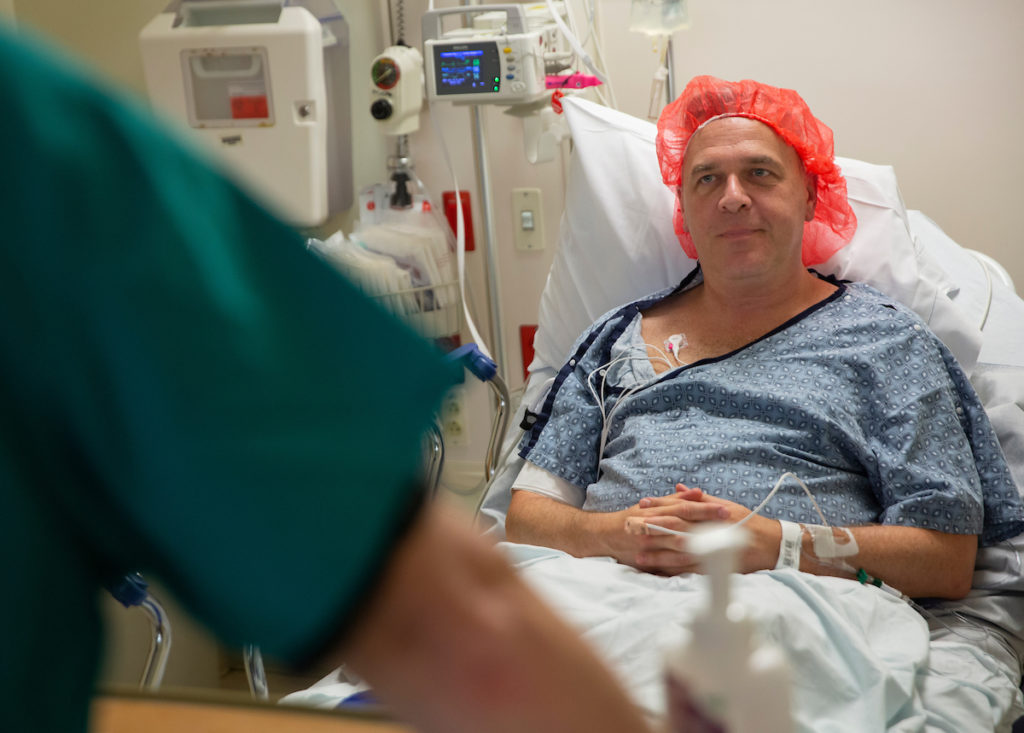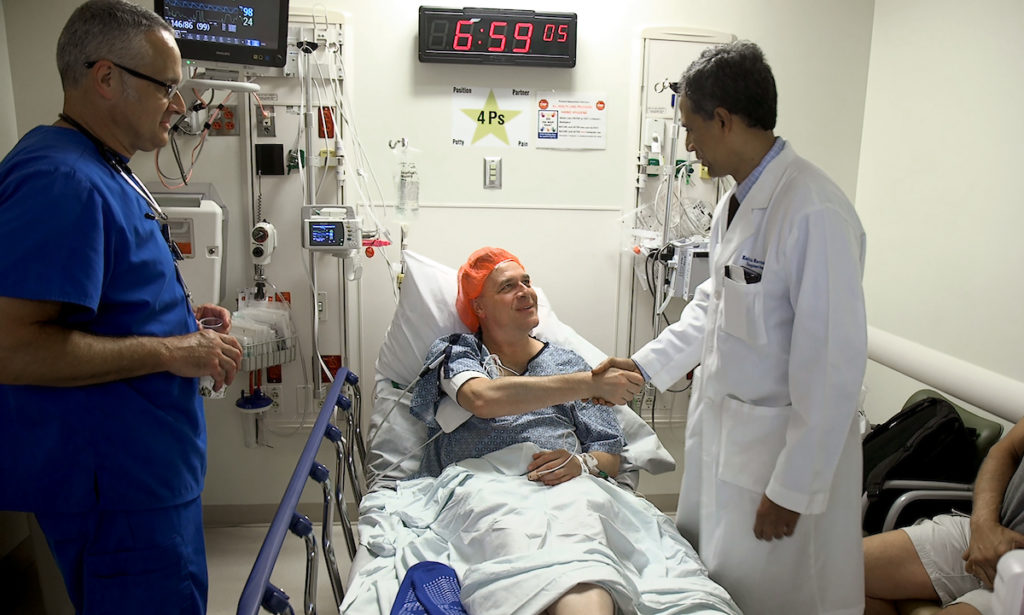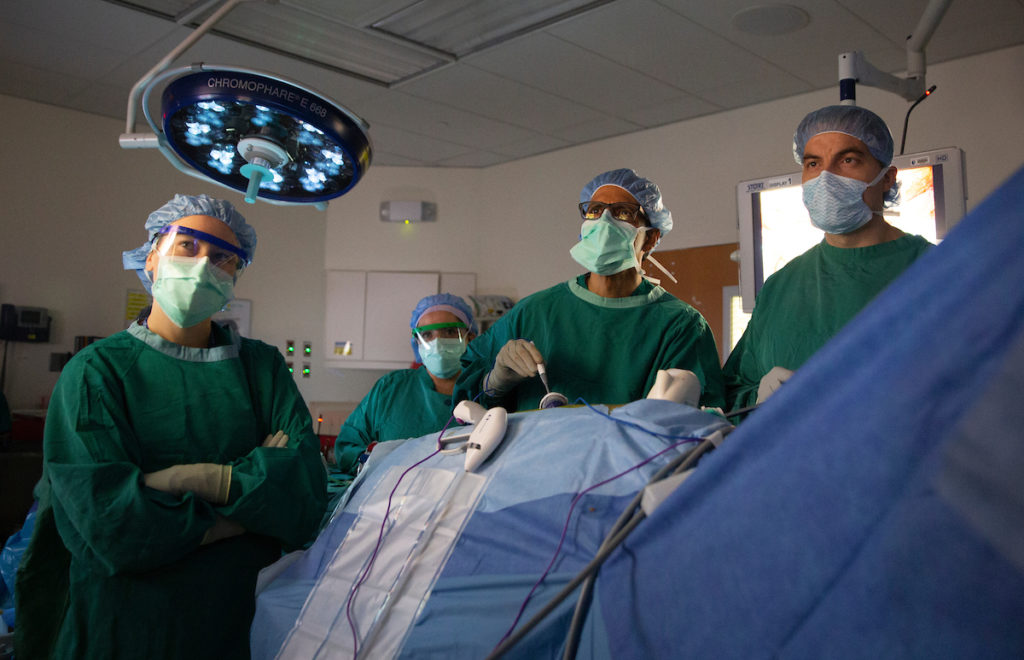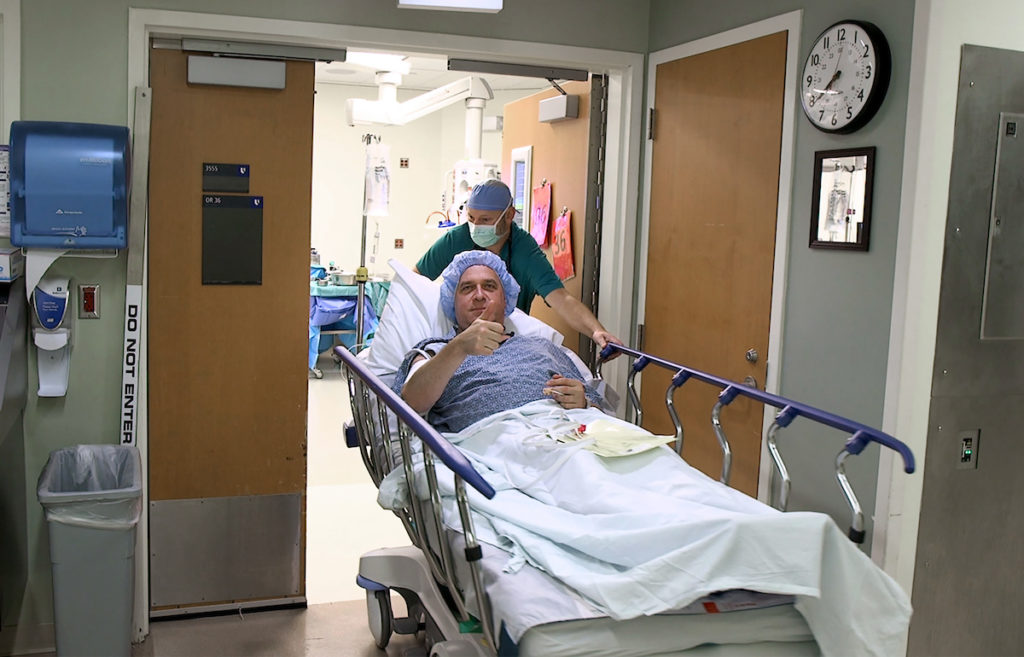A few years ago, organ donation from an HIV positive person was not only unheard of in the United States, it was illegal. That all changed with the passage of The HOPE Act (HIV Organ Policy Equity Act) in 2013 (fully enacted in 2015), which allows for organ donations of kidneys and livers from those deceased or living with HIV.
Advances in HIV treatment
Over the last several decades, advances in HIV treatment have moved HIV from what was largely considered a death sentence in the 1980s to a manageable, chronic illness that is fairly easily controlled. A diagnosis today typically means going onto treatment and becoming undetectable — having so little virus in your blood that there is effectively no risk of transmission. This was unthinkable 20 years ago, but today study after study has proven that undetectable is untransmittable. In one study, researchers reviewed over 50,000 condomless sex acts between a partner that was negative and a partner that was positive, resulting in zero HIV transmissions. Multiple other studies have confirmed these finding, prompting the Center for Disease control to issue a statement in 2017 declaring that “undetectable is untransmittable.”
Those studies, coupled with new science and understandings of HIV, is what brought us to the introduction of organ donation between HIV-positive individuals (The HOPE Act).
Hampton Roads resident becomes 2nd HIV-positive living donor

Karl Neumann in pre-op before donating a kidney. Duke is the only transplant center in North Carolina approved for HOPE Act transplants. The HOPE Act allows for HIV positive people to become organ donors for HIV positive recipients. Shawn Rocco/Duke Health shawn.rocco@duke.edu office: 919-668-0994 cell: 919-812-8291 
Karl Neumann meets Dr. Kadiyala Ravindra in pre-op before donating a kidney. Duke is the only transplant center in North Carolina approved for HOPE Act transplants. The HOPE Act allows for HIV positive people to become organ donors for HIV positive recipients. Shawn Rocco/Duke Health shawn.rocco@duke.edu office: 919-668-0994 cell: 919-812-8291 
Dr. Kadiyala Ravindra, center, removes a kidney from donor Karl Neumann. Duke is the only transplant center in North Carolina approved for HOPE Act transplants. The HOPE Act allows for HIV positive people to become organ donors for HIV positive recipients. Shawn Rocco/Duke Health shawn.rocco@duke.edu office: 919-668-0994 cell: 919-812-8291 
Karl Neumann gives a “thumbs-up” while heading into the operating room to donate a kidney. Duke is the only transplant center in North Carolina approved for HOPE Act transplants. The HOPE Act allows for HIV positive people to become organ donors for HIV positive recipients. Shawn Rocco/Duke Health shawn.rocco@duke.edu office: 919-668-0994 cell: 919-812-8291
Karl Neumann, a resident of Norfolk, VA for 12 years, knows this better than most. He’s worked as a nurse in the transplant field for nearly 25 years, and has followed the HOPE Act and HIV-positive organ transplantation closely. As a nurse, he’s witnessed thousands of patients struggle with things like weekly dialysis, depression, and a loss of self when their medical condition causes them to be pulled away from friends, family, relationships, and their careers.
Like many individuals that enter the medical field, Karl has a sense of empathy and compassion for those in his care. Though he doesn’t describe himself this way, from talking to him he’s clearly an advocate for the transplantation community, and now, the HIV community being only the second HIV-positive living donor to have this procedure in the United States. In fact, Karl decided to give one of his kidneys to a complete stranger. “There are people dying on the waitlist every day. 10,000 people on the waitlist dying every year. There are only a few thousand transplants that occur every year, even though there’s over 100,000 people on the list. I just wanted to get someone off dialysis, get them back to work, get them back with their family,” Karl told us as he prepared for a public announcement at Duke Health today, where the transplant took place about a month ago.
Breaking stigma
Karl found out he was HIV-positive 12 years ago, and while, as a nurse, he knows the in’s and out’s of HIV, he too felt the ugly grip of stigma control his behaviors. It was only a week before the surgery to donate his kidney that he told his family that he was positive.
“As a gay man, I didn’t assume I’d make it out of the 80s alive, let alone being HIV-positive and eventually donating a kidney. This is quite an amazing thing,” Karl said. “And because of the blood moratorium…” — those that are HIV-positive are legally banned from donating blood — “…people think they can’t give. I hope this helps change that.”
More donors helps everyone
Karl’s transplant is a monumental progression for those living with HIV, as well as HIV-negative individuals. Those on the organ donation list (positive or negative) have waits up to 8 years long, and about 50,000 folks are added to the list every year. On average, 20 people die every day waiting for a donation. Adding more potential donors to the pool is a boon for everyone.
“This is an easy, routine surgery. There’s always the possibility of complications in every surgery, and not everyone will want to be a living donor, but it was the right time for me,” Karl explained when we asked how he came to be the second person in the US to under-go this procedure. “I knew Duke was one of the organ banks that was approved to have HIV-positive organs, so I went to them and asked to be a donor.”
Karl hopes today’s press conference, along with images and video he allowed Duke to record (see footage from DukeHealth below), help spread the knowledge of this procedure and inspire others to donate as well. He also wants people to know that the US is considering expanding the HOPE Act to include organs beyond kidneys and livers (those are the only approved organs at this point). There is currently an effort underway to expand the act. You can read more about that here >>
Connect with us!
Twitter.com/LGBTLifeCenter
Facebook.com/LGBTLifeCenter
Instagram.com/LGBTLifeCenter
Learn more about this procedure and Duke Health from their announcement, here >>
LGBT Life Center’s official press release:
—
Leave a Reply